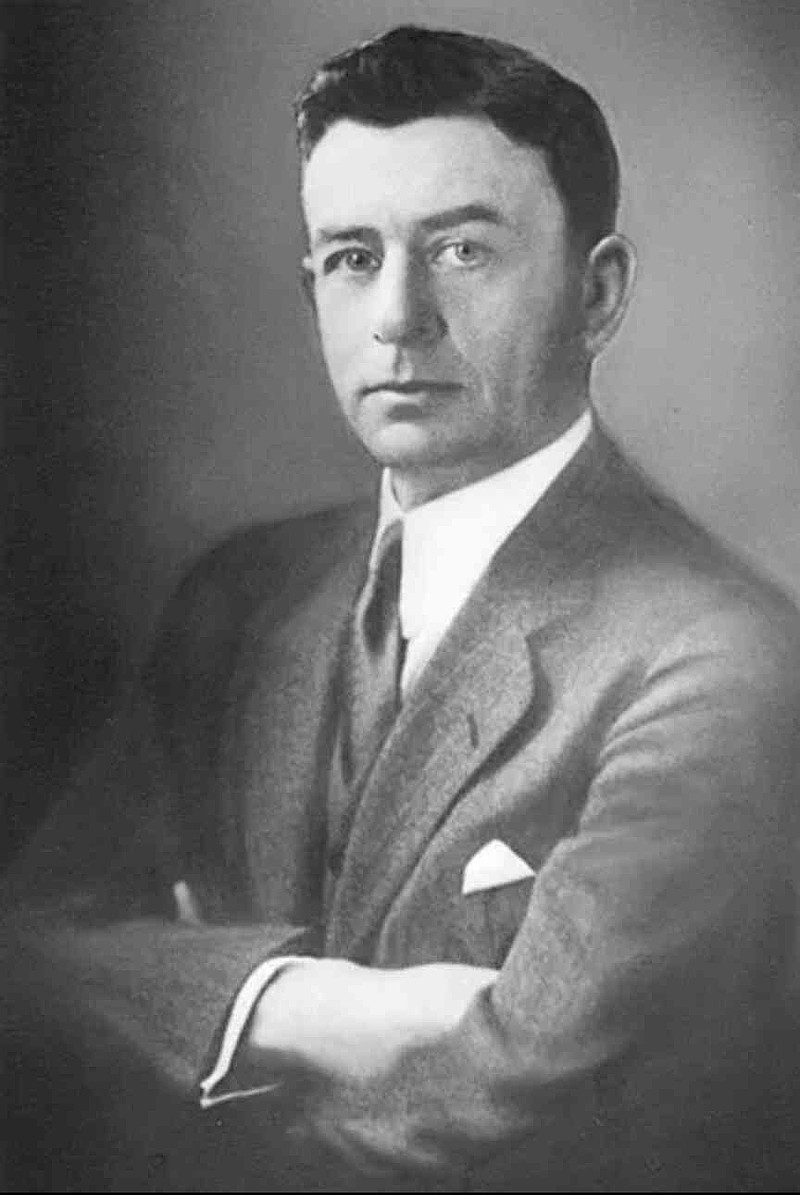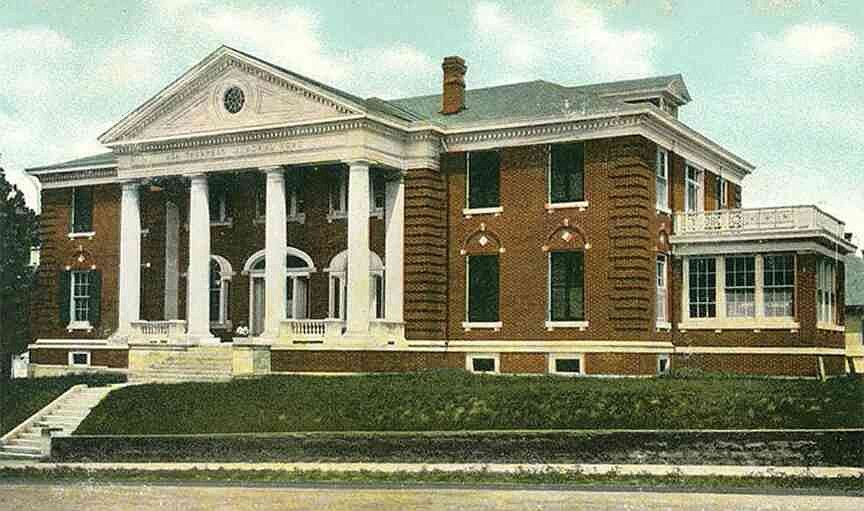Theodore Marcus Sanders was an accomplished architect who designed a variety of buildings in Little Rock and other cities in Arkansas. Many of his buildings have been nominated to the National Register of Historic Places, including the Ada Thompson Memorial Home, the Woman’s City Club building and the Cornish House — all in Little Rock. He was partner in the Thompson, Sanders and Ginocchio firm, which continues to operate in the 21st century as Cromwell Architects Engineers.
Theodore Sanders was born in Little Rock on March 13, 1879, to Fred and Fannie Sanders. He was one of 10 children. The family had settled in Little Rock in 1879 after a relative saved them from starvation on the family’s fledgling farm in Mountain View in Stone County. In Little Rock, the family continued to live in relative poverty. Sanders’ father eventually found stable employment by establishing his own photography business. As the family continued to grow, one of Sanders’ older sisters, Sophia, moved to Germany to alleviate the family’s burden; there, she met and married a wealthy banker, Otto Solmitz. After Sanders graduated from Little Rock High School in 1898, Sophia and Otto offered to finance his further education.
In 1898, Sanders entered the School of Architecture at the University of Illinois at Urbana-Champaign. After graduating in 1902, he continued his studies in architectural design at Ecole des Beaux-Arts in Paris. He was trained in the Eclectic movement, which advocated mixing traditional architectural styles to create new designs.
When he returned to Little Rock in 1903, he became one of two draftsmen for Frank Gibb. The other draftsman, Frank Ginocchio, left in 1905 to join noted architect Charles Thompson’s firm. Gibb promoted Sanders to partner in 1906. Gibb and Sanders together designed the Ada Thompson Memorial Home. In 1908, Sanders designed the Benevolent and Protective Order of Elks building, which later became the Woman’s City Club building.
In 1907, Sanders married Irene Pareira; they had two children, Arthur and Miriam. In 1916, Irene died in childbirth. Sanders went on to marry Annette Joseph in 1924; she soon thereafter had a debilitating stroke.
Sanders left Gibb to start his own firm in 1910. Because of his training in Eclecticism, he was well-versed in a variety of architectural styles. He designed Hotel Freiderica in Little Rock using Italian Renaissance and Colonial Revival, and the Cornish House using Tudor and Craftsman styles.
In 1919, Sanders and Ginocchio — his former co-draftsman for Gibb — joined forces and established the Sanders and Ginocchio firm. Sanders’ talent for design and Ginocchio’s skill for construction supervision made for a well-balanced partnership. Their work included a large number of residences, as well as First Presbyterian Church in Newport and Second Presbyterian Church in Little Rock.
In 1927, Sanders and Ginocchio merged with Charles Thompson’s firm to create the Thompson, Sanders and Ginocchio firm. For the next couple of years, the firm enjoyed a high number of commissions resulting from the area’s expansive growth. One of its most significant projects was the Union Trust building in 1929, for which the architects used an Art Deco design.
During the Great Depression, commissions to design residences dropped, so the firm relied more on projects from institutional and commercial ventures. Little Rock’s Christ Episcopal Church and the M.M. Cohn Co. were some of the firm’s clients, as were what are now Philander Smith University and the University of Arkansas at Pine Bluff.
In 1941, Sanders retired from architecture. His successor was Edwin B. Cromwell, for whom the firm would later be named when it became Cromwell Architects Engineers.
Sanders played an active role in the Little Rock community and charitable organizations. He was a member of the Congregation B’nai Israel and was director of the Jewish Welfare Agency. He established the Theodore M. Sanders Art Exhibit in 1946 to encourage youth art education. In 1937, he took in a foster son, Friedrich Cohn, who emigrated from Germany, undoubtedly to flee Nazi persecution. Cohn would later serve in World War II, earning a silver star for his service.
In professional organizations, Sanders served as president of the Arkansas chapter of the American Institute of Architects and later became regional director of the national organization. He was also one of 18 architects to help establish the Arkansas Board of Architects, which set standards for the architectural profession in Arkansas.
Sanders died on June 10, 1947, and is buried in Oakland Jewish Cemetery. — Shannon Marie Lausch
This story is adapted by Guy Lancaster from the online Encyclopedia of Arkansas, a project of the Central Arkansas Library System. Visit the site at encyclopediaofarkansas.net.




























